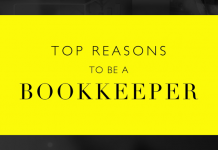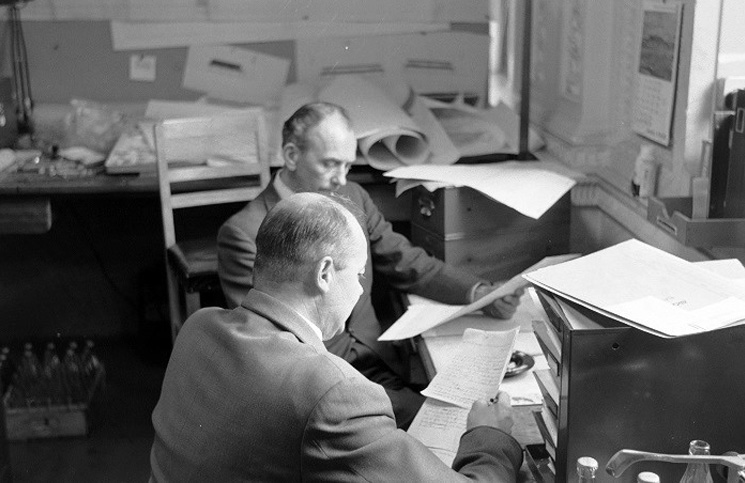The process of accountancy dates back thousands of years and to this day is an invaluable skill highly sought-after across the globe. Keeping track of a business’s finances is not only important for minimising expenses and maximising revenue but is crucial to ensuring a business complies with the appropriate tax laws that govern their earnings.
The next four steps outline how to become an accountant:
Step One: Sharpen Your Accounting Skills
Accountants need to have fantastic eye to detail, a love of math and a high level of competency in handling spreadsheets. Here are some online resources you can use to sharpen your skills:
Online Accounting Resources
- Accounting Coach is the world’s largest free online accounting course. From financial statements to credits & debits, this is an invaluable resource for budding accountants, students and small business owners.
- Learn Accounting for Free has over 50,000 students and utilises engaging video content to teach you all you need to know about accounting.
- MyAccountingCourse.com is a detailed resource covering 5 key topics in depth: financial accounting basics, accounting principles, accounting cycle, financial statements and financial ratios. This course utilises quizzes to double check you’ve retained the important information.
Learn to Master the Art of Spreadsheets
- Mr. Excel is your one stop shop for Excel tips and solutions. Utilising video, podcasts and much more to help both beginners and more advanced spreadsheet users.
- Excel Exposure is set up more like an online course so if you’re looking to dig deep and regularly develop your skills, this could be the course for you!
- GCF Learn Free have an impressive section on their site dedicated to learning Google Sheets. Many accountants are starting to utilise Google Sheets instead of Excel as it is much easier to share documents and collaborate on projects with the online software.
- Excel Easy provides a large number of free Excel tutorials.
Step Two: Decide What Type of Accountant You Want To Be
Choosing what type of accountant you want to be is important as it will likely determine your areas of study and also the type of work you’ll be carrying out in your day to day work. Here’s a breakdown of the most common UK accountant types:
Chartered Accountants – A chartered accountant can work in a variety of different environments in settings from multi-national corporations to working as a sole practitioner. With this in mind some chartered accountants are able to work from home. Here are some services a chartered account may carry out:
- Corporate finance/recovery
- Auditing/assurance
- Accountancy tax
- Business advisory
Management Accountants – Management accountants are focused more on a business’s future finances than the past as their role is centered around improving the performance of the business through analysis of it’s finances. In this respect a great deal of their day to day work will be involved
Forensic Accountant – A forensic account analyses, inquiries and investigates finances in an attempt to gain the truth and put forward expert opinion on maters of disagreement. This could involve an analysis of fraud/embezzlement cases or simply gaining an understanding of any discrepancies that occur in a company month on month. In this respect, a forensic accounting will need an understanding of law in the financial sector.
Step Three: Choose your Education Path
“Although having a university degree in accounting/finance is not absolutely necessary, it is critical that you are a graduate with a good degree if you want to join the big accounting firms or even small/medium sized businesses. More so with those wanting to go for ACCA, which is where the big money can be earned after qualification. Certainly, a university degree (or advanced diploma) gives you more advantages over someone who hasn’t got a degree – online accounting resources alone just won’t cut it.” – QuietlySaving.
Choosing the best course will depend on the decision you have made in Step Two but in terms of education, there are two suggested routes:
Route A: Qualify with One of Three Main Bodies for Accounting
On average the highly acclaimed qualifications will taken around four years to complete. You can find out more details about these on their websites below:
ICAEW – The Institute of Chartered Accountants England and Wales
CIMA – Chartered Institute of Management Accountants
ACCA – The Association of Chartered Certified Accountants
Route B: Take a Shorter Course then Work Your Way Up Through Practice & Training
The AAT course typically takes 6-12 months to complete, upon completion you will be prepared to apply for starter accountant jobs such as ‘assistant accountant’ etc. This will equip you with the key skills to get started. However, it is very likely you will start on a lower salary than someone who has qualified with one of the main bodies.
Step Four: Apply for a Job in Accountancy
There is very rarely a shortage of jobs in career or finance so once you’ve achieved your certification you will need to take on the task of applying to accountancy jobs in you desired field. Education will lay a big role in securing you an interview so be sure to make this a prominent area of your CV.
Please note: Once you’ve secured an accountancy interview it is highly important you prepare for an aptitude test as these are a very common way for potential employers to determine your potential effectiveness in the finance sector.
Check out the latest UK jobs in accounting and finance.
How Much Does an Accountant Earn?
- The starting salary for an accountant varies greatly between £15,000 – £25,000.
- Where you appear on this scale depends on your level of education, experience in similar fields, the type of company and your location.
- The 2014 average salary for all UK accountants is £27,456 per year according to Payscale.com.
- Accountants in the top 10% of their field can earn around £50,369.






























Even though I do not want to be an accountant, taking short courses and learning more about how accounting works can be a great thing. I am a business owner and I am always trying to brush up on my knowledge in this area.
I think there’s a big knowledge gap, when it comes to advice in accounting for new businesses – not just from a tax angle either, it would be great to see more content on tracking income/expenditure, what software to use etc.
Have you written any posts on how you manage this Michelle? I’d love to hear what you have to say on this topic!
Thanks for stopping by,
Joe
Although having a university degree in accounting/finance is not absolutely necessary, it’s pretty critical that you are a graduate with a good degree if you want to join any of the big accounting firms, or even small/medium sized businesses. More so with those wanting to go for ACCA, which is where the big money can be earned after qualification. Certainly, a university degree (or advanced diploma) gives you more advantages over someone who hasn’t got a degree – online accounting resources alone just won’t cut it.
I come from a family of accountants – my sisters went to uni, two subsequently qualified as ACCA, one as ICAEW. One is still an accountant (or rather Financial Controller) for a global US company, one is a CFO for a large retail company and another is a trust fund manager for a Swiss company.
Hard work with all the exams but great careers in the end.
Great insight, thanks Weenie! Have updated the post with your input!